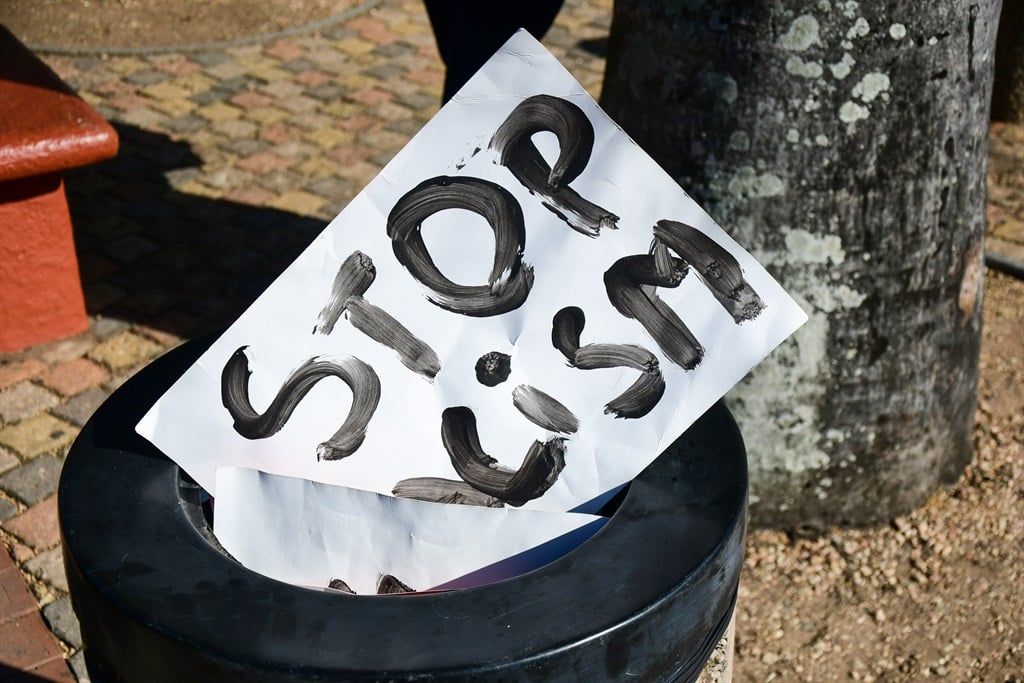
Virtually every problem we face in South Africa is touched, one way or another, by our legacy of systemic racism and the psychological damage it has caused people of all races across the board. Ian Fuhr writes that to save the country, we must find ways to transform the mindsets of its people.
South Africans are nervous about the future of our country, largely because of the multiple crises we face and the uncertainty about the outcomes of the 2024 election.
We are looking down the barrel of overwhelming challenges in virtually every aspect of government and society, and a sense of negativity and hopelessness is gathering momentum.
I was fortunate enough to be in the audience for News24's "On the Record Summit" in Cape Town at the end of May. There were some highly relevant panel discussions about the future of South Africa. These included opposition coalitions, organised crime, climate change and more, all of which I found extremely interesting. I was, however, waiting to hear something about the future of race relations and was surprised by its glaring omission. Remarkably, South Africans seem to have given up any hope of actively solving racial polarisation and have succumbed to the "it is what it is" attitude.
I cannot possibly conceive of any meaningful future solution to South Africa's current problems, that does not include a large-scale effort in the area of racial healing.
Having dedicated a significant part of my lifelong entrepreneurial journey to race relations in the workplace, and now consulting on the subject to several companies, large and small, I have seen first-hand the impact of polarisation. Virtually every problem we face in this country is touched, in one way or another, by our legacy of systemic racism and the psychological damage it has caused people of all races across the board.
Race relations and social cohesion are undoubtedly our biggest challenges, and yet they stand invisible on the list of priorities for building a future society that is just and equal.
According to the preamble of our Constitution, "South Africa belongs to all who live in it, united by our diversity". Well, nothing could be further from the truth. In reality, South Africa belongs to the privileged few, and we are horribly disunited in our diversity. It says nothing in our Constitution that we should strive to be one of the most unequal societies in the world, and yet that is one of our inglorious achievements.
What is Racial Healing?
Racial healing is a process that restores people and communities to wholeness, repairs the damage caused by systemic racism, acknowledges the truth about past wrongs, facilitates trust-building, and fosters authentic relationships that bridge the divides created by real and perceived differences.
Most importantly, racial healing is the unavoidable and critical ingredient required to address the current consequences of our racially unjust past. Before you can transform systems and structures, surely, you must do the people work first.
The heavy burden of our history
It is becoming increasingly unpopular among white people to be reminded of our past and its impact on the present. I hear daily comments like, "Can't we just put the past behind us and focus on the future." That is so much easier to say when you are the beneficiary of your history. It gets a lot more difficult when you are the victim of your past.
No matter how much people want us to wish away our history, we would do so at the great risk of ignoring and undermining the enormous psychological consequences of systemic racism. The wounds run deep. Much deeper than most people even begin to understand. What took over 300 years to instill in the minds of our people will not magically disappear in 30 years.
READ | OPINION: Tyla Dallas - Reconciling for a meaningful democracy
Early European colonisers arrived at these shores with the fundamental belief that they were of a superior race and thus had the right to dominate the lands and cultures of the indigenous people. They believed they were better, smarter and more civilised than the people they dominated, and they used these beliefs to justify the unequal and inhumane treatment of the local inhabitants.
And so systemic racism evolved into a long and devastating journey of white supremacy, culminating in apartheid-driven legislation to separate and dehumanise people of colour.
Steve Biko pointed out that "after being told for 300 years that they were inferior, black people came to believe in their own inferiority". He also said that "the greatest weapon in the hands of the oppressor is the mind of the oppressed".
Mistrust
The fundamental result of our history, and now the greatest obstacle standing in the way of a brighter future for all our citizens, is mistrust, the debilitating consequence of centuries of racial brainwashing. Through internalised racial beliefs, people were taught to fear and mistrust people from other race groups. In my experience, that mistrust is still deeply etched into the minds of our people.
For example, I hear from many black people that they have lost faith in the ANC, but they steadfastly refuse to vote for any other parties that may be perceived as white and elitist as they don’t trust white people. Rebuilding trust is no simple task, but that doesn't mean we shouldn't try. Our country may be broken, but our people are not. The word "resilient" is often used to describe South Africans, but instead of being resilient and finding ways around the many challenges we face, perhaps we should rather tackle the root of all our problems - racial mistrust and polarisation.
How white people have been impacted by feelings of superiority.
The focus over the years has been largely on the psychological impact of systemic racism and perceived inferiority on people of colour. But it is important to understand that white people have also been impacted by their own feelings of superiority. Here are a few examples:
- Many white people have been indoctrinated from an early age to distance themselves from people of colour. As a result, they have a distorted view of humanity and have put real human connection out of reach.
- The notion of white superiority has created the belief that people of colour do not deserve equal treatment. This makes it extremely difficult for them to acknowledge the need for Black Economic Empowerment.
READ | OPINION: White South Africans - We have got to get real about race
- Through the distortion of historical facts, many white people are blissfully ignorant and unaware of the extent of the injustice and inequalities of our past. They often feel great shame and guilt when they learn the truth.
- Historically, companies have developed white male-dominant cultures that sometimes overlook or downplay the unique cultural identities of other racial groups. Instead of fostering an inclusive environment that embraces diversity, the focus has often been on assimilating diverse individuals into the existing culture.
How do we go about racial healing?
In order to restore wholeness and repair the damage of our past, there are several things that can be done, individually or in groups that can transform the mindsets of our people and heal the wounds of racial polarisation:
- Know your own racial identity and explore what you were taught about race as a child.
- Discover your own internalised racial biases, conscious or unconscious, and the impact they have had on your behaviour towards people of other races.
- Relearn the history of racism and come to terms with the truth.
- Raise your race consciousness and engage with people of different races.
- Do not treat people the way you would like to be treated. Rather treat them the way they would like to be treated.
- Listen with the intention to learn and understand…. not to deny and defend.
- Be a racial ally and learn how you can help others combat racial injustice.
- Engage in collective racial healing and find ways to support healing in your community.
- Pay forward your privilege and identify how you can practice and promote equity.
From a business perspective, racial polarisation impacts on productivity undermines culture and destroys a sense of belonging. The people who suffer most from a toxic culture are the customers. The customer experience will never be better than the employee experience.
To save this country, we must find ways to transform the mindsets of its people. We need to cling onto the hope that racial healing is possible because hope is the only thing stronger than fear and mistrust.
- Ian Fuhr is an entrepreneur.
*Want to respond to the columnist? Send your letter or article to opinions@news24.com with your name and town or province. You are welcome to also send a profile picture. We encourage a diversity of voices and views in our readers' submissions and reserve the right not to publish any and all submissions received.
Disclaimer: News24 encourages freedom of speech and the expression of diverse views. The views of columnists published on News24 are therefore their own and do not necessarily represent the views of News24.




 Publications
Publications
 Partners
Partners























